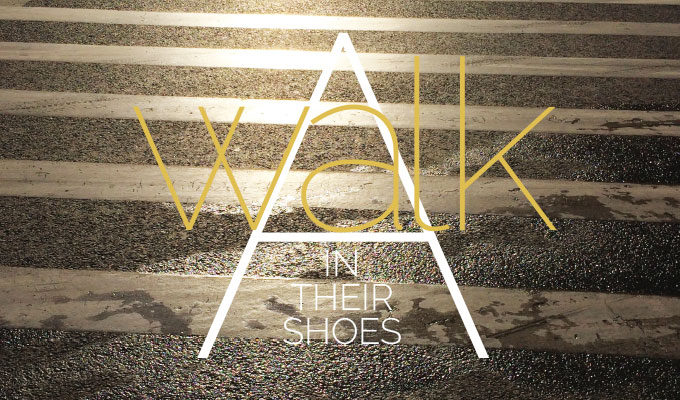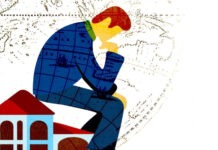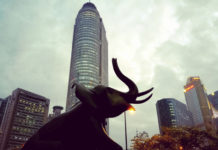Imagine it’s Sunday afternoon, you exit Suguo with your week’s worth of groceries dangling off your arms. You stand at the intersection watching the faded red man within the traffic light. The numbers beneath him decrease, then he is replaced by an equally little green man. The universal green man, he transcends languages and cultures, everyone knows it means walk.
So that’s exactly what you do. You step off the curb, and start walking with the zebra crossing underneath your feet. You make it a quarter of the way, when you feel an inkling to look left. Everything slows down, your eyes lock with the oncoming driver and you realise you’re going to get hit and there is nothing you can do about it. As the second law of physics dictates, no two objects can occupy the same place at one time. Between two tons of metal hurling towards you and yourself a sack of flesh and bone, one of you will go flying.
You don’t feel the impact initially, you flip over the dashboard and feel the shards of glass cut your face. Your body’s momentum keeps you going, you fly over the roof. You and the driver each failed one of the two traffic laws of China. You fail the don’t get hit aspect, and he failed the don’t hit anything part. You come crashing down behind the car. Your head bounces against the pavement, finally stopping after the 5th bounce. Your eyes are open but they aren’t registering anything. Your bare face sizzles against the hot asphalt. Despite your ears ringing, you still hear dozens of car horns. Then as your eyes clear you realise they are honking at you. You’re disgusted, you’re in such as weakened state and all they care about is their next destination.
You watch a bystander run up to you panic stricken. Then they lay down next to you. They mimick your movements as you wince in pain, then turn to you and whisper “I feel your pain.”
That is the absurdity of empathy. How can you pretend to feel the emotions of another?
Call me pessimistic, but we as humans are egotistic emotional parasites. We feed off of each other’s hardships to validate ourselves through empathy. Empathy is often explained through the idiom of “walk a mile in their shoes” or, as Atticus Finch in “To Kill a Mockingbird” put it, “climb inside of his skin and walk around in it”. As people, we believe that each and every one of us is of individual significance, and when we become insecure we feel the need to display our morals ostentatiously. We react much like an older sibling, when the new baby is getting all the attention, with “significance envy”. We steal from the misfortune of others and dub their pain as our own.
Chinese philosopher Zhuang Zhou, often known as Zhuangzi, realised the paradox of empathy in 4 BCE. In his book, named after himself, he wrote an anecdote called “The Debate on the Joy of Fish”.
Zhuangzi and Huizi were enjoying themselves on the bridge over the Hao River. Zhuangzi said, “The minnows are darting about free and easy! This is how fish are happy.”
Huizi replied, “You are not a fish. How do you know that the fish are happy?”
Zhuangzi said, “You are not I. How do you know that I do not know that the fish are happy?”
Huizi said, “I am not you, to be sure, so of course I don’t know about you. But you obviously are not a fish; so the case is complete that you do not know that the fish are happy.”
Zhuangzi said, “Let’s go back to the beginning of this. You said, How do you know that the fish are happy; but in asking me this, you already knew that I know it. I know it right here above the Hao.”
This shows the impossibility of empathy. Zhuangzi claims that Huizi cannot know that he does not understand the happiness of the fish, but Zhuangzi is making a proclamation on how Huizi feels. If you pretend to know another’s emotion, all sense of individuality is lost. How can assumptions be made that others will feel the same way as oneself in identical circumstances?
In the Western hierarchy of acceptable human emotions, empathy is placed at the top. It is not always displayed, but its considered a reputable characteristic. Chinese opinions of empathy vary substantially, as empathy does not appear in the hierarchy at all. This is seen in the infamous Peng Yu case in 2006, where a man was sued for medical expenses after helping an elderly woman and taking her to the hospital. The case is referenced in more detail in our article, “Little Emperor Syndrome; Empathy or China’s Lack Thereof”.
Many Westerners living in China are fortunate enough to have been able to travel to other Asian countries. We are the prime target for empathy manipulation. When travelling in poorer regions, the sight of child beggars might appall you. The first inclination is to pull out your wallet. It hurts deep down to resist giving them money, but that may be the reason they are on the street. Crime syndicates kidnap and maim children. They give them minimal amounts of food to keep them emaciated, so you’ll fork over some cash.
This is the lure of empathy, It does more harm than good despite seeming altruistic. There are babies drugged to sleep into their “mother’s” arms. Women and children are portrayed as the most vulnerable members of society. The victimisation of them is further perpetuated by us. We give them money because it makes us feel good. But by giving, over the long term we make the world an even worse place.
Countries such as Cambodia have a booming tourist industry, in which a flourishing attraction is orphanage tourism. Well-meaning visitors are in fact helping to force the separation of children and parents, keep them out of school, and violate children’s rights. Helping out as part of our travel itineraries is no better than elephant rides. Our heart strings are tugged at by children and animals. Our minds are clouded by empathy and they fog up all rational reasoning of how to do good.
We believe our desire to help and the emotions we feel about other people’s stories are our innate good. But we are drawn to stories, where we can help and show that we’ve helped. We seek out visible struggles such as penguins covered in oil, rather than the millions of silently suffering child brides. We broadcast our good deeds for the world to see. Empathy evokes us to act but ultimately, it is only for our own good.














